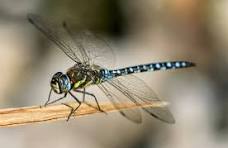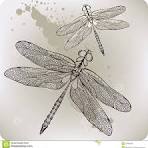When we have successfully completed high school, we think we know it all. After a period of about twenty years of eagerly acquiring knowledge and not minding that there are things you don’t know, modesty suddenly disappears and is replaced by an attitude of ‘I now know it all ‘. How life works, what we can expect from it, which goals we have in mind, and so on. However, it soon turns out that we have no idea what there is to know, but admitting that is still a step too far. The Greek philosopher Socrates (469-399 BC), the founder of Western philosophy, tells us that the more you know, the more you realise that you actually know nothing. Such a liberation to admit that there is a lot you don’t know. Before I go any further, let me explain how I unexpectedly ended up on this topic.
I found a dragonfly wing and instead of throwing it away, I looked at it attentively and discovered a fine-meshed network of hundreds of veins and membranes, which of course all have a function. I had no clue and that’s how my brain started working.


What do we actually know about, for example, the cell functions in our body, how our brains work, about the plant and animal world, how beautifully everything is put together, or… who we are? Almost nothing, except for the scientists who specialise in a specific subject, but they are also limited to their own field. Is it bad, I wondered, that we know so little. No, not at all, you can’t know everything. After all, it is enough if you know how to function in the world, although all too often we do not understand why certain things happen. I thought of Noam Chomsky (1929), the American linguist and activist, who once said: Most of humanity does not know what is happening. It doesn’t even know that it doesn’t know this. Yes, here we have a problem, because we are not aware of what is going on. Arrogant, not open to people who think differently, we live our lives totally blind and unaware. Not even aware of who we really are; knowing that is the core of all wisdom. Know thyself, it says in the Bible and many other scriptures. The rest will follow automatically, if we also acknowledge our shadow side, as Carl Jung (1875-1961) wisely tells us. Loving yourself despite all your shortcomings. For example, he also stipulates that people who irritate us hold up a mirror to us of what we do not want to see in ourselves. When we realise this, we gain self-insight and can convert the irritation into a feeling of gratitude towards the person who showed it to us. Are you about to criticise someone? First look at yourself, be aware of where that criticism comes from, adjust your judgment (if you should judge at all) and talk about it. By doing so you help others and also yourself. Know what you are doing, why you are doing it, live consciously, because that is what we are: consciousness. When our body has died we know what it is all about, there are no more earthly distractions, only pure consciousness, which is immortal.
Isn’t it great to know that?
Thank you Ada to remind us about all these questionnements.
Thank you my friend to remind us that they are so many questions often without answering.
It’s a pleasure, Danielle
When you really stop and think about it, these concepts are so simple. All too often we can’t see the wood for the trees…
Ada, thank you once again for shaking me awake
It is, Donald. Just being aware, that’s all
Good one Ada! At a deeper level the Buddhists talk about ‘Beginner Mind’ or ‘The Don’t Know Mind.’ And in quantum physics this is called the realm of pure potentiality……where all is possible and where the creative force abides. So, when we think we know anything we are staying stuck in the finite mind and cutting ourselves off from the Universal Intelligence, which does know all things!
Quantum physics has scientists becoming more aware, indeed Loraine. Thanks for your contribution!